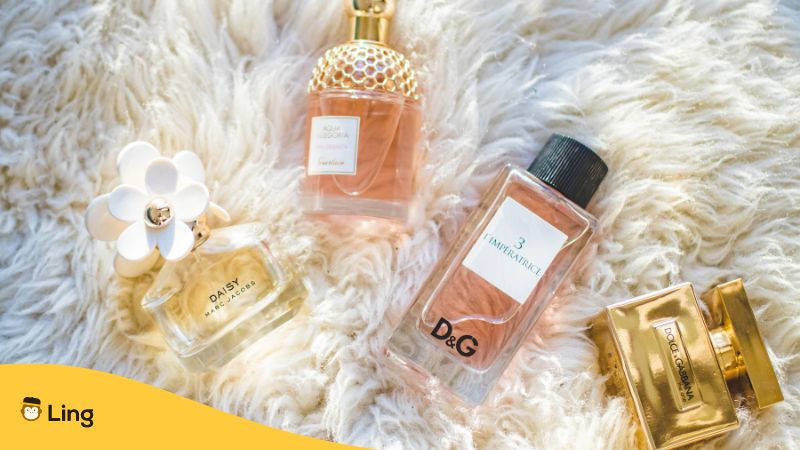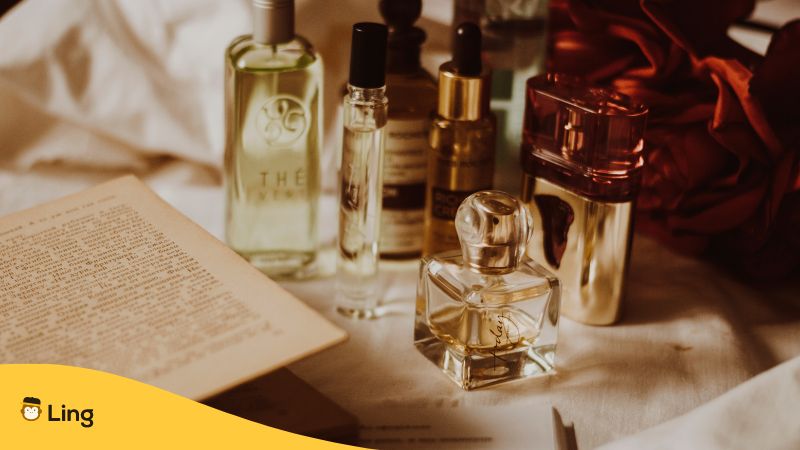Imagine walking through Korea, and suddenly a fragrant aroma envelops you, transporting your senses on a metaphorical roller coaster ride. “What is that?” you wonder with both curiosity and delight. Luckily for you, we’re here to be your trusty scent translators. So, buckle up because we’re about to take a deep dive into the intoxicating realm of Korean words for scents. Let’s go!
Learning a new language can be quite a challenge, but when it comes to adding a little sniff of excitement, becoming acquainted with Korean words for scents is downright fascinating. You’ll never have to play the guessing game in the Land of the Morning Calm again. Keep reading for a whiff of linguistic wonder, seasoned with humor and surprise.
What Is “Scent” In Korean?
The Korean language, being as rich and nuanced as it is, has a lot to offer when it comes to describing various scents. They’ve got their olfactory game on fleek. But let’s start with the basics first — the word for “scent” itself — shall we?
Drumroll, please… meet 향기 (hyang-gi), the Korean word for “scent.” Now, don’t be fooled by any naïveté you think you might spot here. 향기 (hyang-gi) is a passport into the vast fragrant universe, a key that unlocks all kinds of olfactory delights. It’s your trusty sidekick when deciphering the aroma of food, flowers, or anything else you can catch a sniff of in the Peninsular paradise that is Korea!
Another word you may consider is 냄새 (naem-sae). 냄새 (naem-sae) is a versatile term used to describe scents, good or bad. Whether you’re sniffing the sweet aroma of a rose garden or the equally memorable fragrance of a pair of well-worn sneakers, 냄새 (naem-sae) has you covered! However, be cautious – 냄새 (naem-sae) often tips towards a negative connotation, so it’s safer to use in less pleasant smell contexts.

Korean Words For Scents
Ready to infuse your vocabulary with scents that make sense? Dive right into this concise guide of Korean words dedicated to the world of scents.
향수 (Hyang-Su)
No need for a calculator! 향수 (hyang-su) translates to perfume in the aromatic language of Korean. For those with eyes on a new scent, ‘향수 (hyang-su)’ is your linguistic accomplice!
- Korean script: 그녀는 그 향수의 거친 향을 좋아하고 있습니다.
- Korean pronunciation: Geunyeoneun geu hyangsu-ui geochin hyang-eul joahago itsseumnida.
- English translation: She is fond of the strong scent of that perfume.
화장품 향 (Hwajangpum Hyang)
For the Beauty Geeks and Scent Freaks, 화장품 향 (hwajangpum hyang) encapsulates the spectrum of cosmetic scents. From bouquet-ish lotions to fruit-infused lip balms, 화장품 향 has you smelling delightful at every turn!
- Korean script: 이 화장품의 향은 부드럽고 신선함을 느낄 수 있습니다.
- Korean pronunciation: i hwajangpum-ui hyang-eun budeureopgo sinsaonham-eul neukkil su issseumnida.
- English translation: The scent of this cosmetic lets you feel softness and freshness.
비누 향 (Binu Hyang)
Epitomizing the familiar, crisp aura of soap, 비누 향 (binu hyang) transports you to a world of bubbles and bath-time tranquility. Let’s all admit it, we sniff our soaps more often than we’d like to confess!
- Korean script: 샤워 후 나는 그 비누 향을 많이 느낄 수 있었습니다.
- Korean pronunciation: Shawo hu naneun geu binu hyang-eul mani neukkil su isseossseumnida.
- English translation: I could smell the soap scent strongly after the shower.
불 향 (Bul Hyang)
Fire-side memories are incomplete without the distinctive, smoky fire scent or 불 향 (bul hyang). It’s the enchanting aroma that lingers after a night of stories, s’mores, and smiles around the bonfire.
- Korean script: 장작 불이 타면서 나는 그 불 향이 좋았습니다.
- Korean pronunciation: Jangjag buri tamyeonseo naneun geu bul hyang-i jotsseumnida.
- English translation: As the firewood was burning, I was fond of the fire scent.
서늘한 향 (Seoneulhan Hyang)
Breathe in deeply for a scent that’s as refreshing as an icy lemonade on a sultry summer day. Known as a cool scent, 서늘한 향 (seoneulhan hyang) encapsulates the aroma post a brisk morning walk.
- Korean script: 대양이 일으키는 서늘한 향이 이곳에 적시네요.
- Korean pronunciation: Daeyang-i il-eukineun seoneulhan hyang-i igos-e jeokssineyo.
- English translation: The cool scent the ocean gives off permeates this place.
봄 향기 (Bom Hyanggi)
Meet 봄 향기 (bom hyanggi), the term that delivers the smell of spring fresh to your doorstep. Blending blooming blossoms with new growth’s freshness, this scenic scent awakens a sense of renewal in your heart (and nostrils)!
- Korean script: 봄이 오면, 꽃들의 봄 향기가 너무 예쁩니다.
- Korean pronunciation: Bom-i omyeon, ggochdeul-ui bom hyanggi-ga neomu yeppeumnida.
- English translation: When spring comes, the spring scent of flowers is so beautiful.

Learn Korean With Ling
And there you have it – we’ve journeyed through the rich and immersive scented world of Korean vocabulary, unveiling sweet and savory scents, one fabulous fragrance at a time! But hold onto your nostrils because this olfactory expedition is far from over. If your nose (and knowledge banks) are itching to delve even deeper, we’ve got the perfect tool to keep you learning!
Introducing the Ling app, your personal passport to an ever-expanding vocabulary as you explore the aromatic alleys of Korea’s lexicon. Say goodbye to dull language learning and hello to an exciting, engaging, and entertaining experience tailored for knowledge-hungry learners like yourself.
Now available on the App Store and Play Store, the Ling app is meticulously designed to add a touch of fun to your linguistic journey while presenting facts in snack-sized bites, perfect for digesting on the go. With the Ling app in your arsenal, you’ll explore beyond the surface of scented sensations and dive into the depths of Korea’s linguistic treasures.



































































